Significant price increase is coming soon due to tariff increase.
Significant price increase is coming soon due to tariff increase.
Add description, images, menus and links to your mega menu
A column with no settings can be used as a spacer
Link to your collections, sales and even external links
Add up to five columns
Add description, images, menus and links to your mega menu
A column with no settings can be used as a spacer
Link to your collections, sales and even external links
Add up to five columns
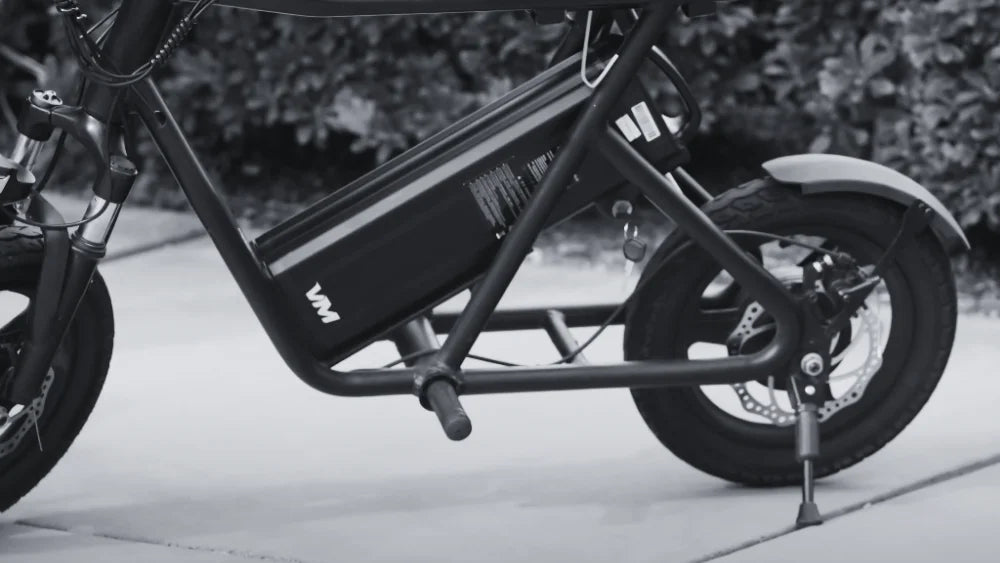
Batteries 101: How to Make Your Electric Scooter Last Longer
January 20, 2024 6 min read 2 Comments
For many of us, electric scooters have become an indispensable part of our daily commute. They offer a unique blend of convenience, speed, and sustainability that few other modes of transportation can match. At the heart of these incredible machines, powering every swift move and rapid acceleration, is the humble but mighty battery.
But how much do you really know about your electric scooter's battery? Are you aware of how to care for it to prolong its life, ensuring you get the most from your electric scooter over time? Perhaps you've been experiencing shorter range or decreased performance. In this guide, we'll cover the different types of batteries, how they function, and most importantly, provide practical tips on prolonging your scooter's battery life. Let’s get started!
Understanding Electric Scooter Batteries
The battery is the heart of any electric scooter, supplying the necessary power to get you where you need to go. But not all scooter batteries are created equal. Let’s take a look at the most common types of electric scooter batteries.
Types of Electric Scooter Batteries
Electric scooters typically use one of three types of batteries: lead-acid, nickel-metal hydride (NiMH), or lithium-ion (Li-ion). Each type has its pros and cons, and understanding these can help you better care for your scooter's battery.
Lead-Acid Batteries
Lead-acid batteries are the oldest type of rechargeable battery and are commonly used in entry-level and budget electric scooters. They are known for their durability, high surge currents, and affordability. However, they're larger and heavier than other types, and they don't last as long, often needing replacement every year or two.
Nickel-Metal Hydride Batteries
Nickel-metal hydride (NiMH) batteries offer a good balance between cost and performance. They're more efficient and environmentally friendly than lead-acid batteries but aren't as powerful or long-lasting as lithium-ion batteries. NiMH batteries also suffer from the 'memory effect', meaning they need to be fully discharged before recharging to maintain their capacity.
Lithium-Ion Batteries
Lithium-ion (Li-ion) batteries are the most common batteries in mid to high-range electric scooters, thanks to their impressive energy density. They are lighter, smaller, and have a longer lifespan compared to the other two types of batteries. Li-ion batteries can also hold their charge well, and they don't require regular full discharges like some other battery types. However, they are more expensive and can be affected by extreme temperatures.
How Do Electric Scooter Batteries Work?
Regardless of the type, all scooter batteries work on the same principle. They store energy and release it to power the scooter. When you charge your scooter's battery, you're essentially filling it up with electrical energy. As you ride your scooter, the stored energy is slowly discharged, powering the electric motor and propelling your scooter forward.
Over time, a battery's capacity to hold a charge diminishes due to repeated charging and discharging cycles. This is why understanding and caring about your electric scooter's battery can significantly enhance your ride's performance and longevity.
Factors Affecting Battery Life
Electric scooter batteries, like all batteries, don't last forever. Their lifespan is influenced by several factors, some of which are within your control. By understanding these, you can take steps to maximize your scooter's battery life.
Temperature
Temperature plays a significant role in the performance and lifespan of your scooter's battery. Both extreme heat and extreme cold can negatively impact the battery. High temperatures can cause the battery to overheat and degrade faster, while freezing temperatures can reduce the battery's capacity and efficiency. As a general rule of thumb, try to store and charge your scooter in a location with a moderate, stable room temperature.
Charging Habits
How often and how long you charge your battery can significantly affect its lifespan. Overcharging or undercharging can shorten its lifespan. Ideally, the widely used lithium-ion batteries should be kept between 20% and 80% charge for optimum battery health. Also, cheaper, non-approved chargers may not provide the correct voltage, which can harm your battery over time.
Usage
Your riding habits and the conditions in which you use your scooter also impact the battery life. Regularly riding at top speeds, frequent hill climbing, or carrying heavy loads can put more strain on the battery, causing it to discharge faster. In contrast, riding at moderate speeds on flat terrain can help extend battery life.
Additionally, if the scooter is not used for a long time, the battery may slowly lose its charge, which can lead to a condition called 'deep discharge'. This can damage the battery and significantly shorten its life.
How to Extend Electric Scooter’s Battery Life
Knowing how to extend your electric scooter's battery life can save you money and help you get the most out of your ride. Here are some practical tips that will go a long way towards keeping your scooter's battery in top shape for as long as possible.
Proper Charging
Charging your scooter's battery correctly is crucial to its lifespan. Follow these guidelines for best practices:
-
Don't wait until it's completely empty: Frequently discharging your battery to 0% before recharging can stress and wear out the battery faster. Instead, aim to recharge when the battery level drops to about 20%.
-
Avoid overcharging: Leaving your scooter to charge overnight or beyond the recommended charging time can also harm the battery. It's best to unplug the charger once it's fully charged.
-
Use the right charger: Always use the charger supplied by the scooter's manufacturer. A charger with incorrect voltage can damage the battery over time and faulty chargers can cause electrical problems.
Electric Scooter Storage
Proper storage is vital in maintaining your scooter's battery health. Here are some tips:
-
Temperature control: As mentioned earlier, extreme temperatures can affect battery life. Store your scooter in a cool, dry place to avoid temperature extremes.
-
Store with some charge: If you're not going to use your scooter for a while, ensure the battery isn't empty. A charge level of around 50% is usually recommended for storage. A battery left to completely discharge for too long can enter a state of deep discharge, which can permanently damage its capacity.
-
Regular top-ups: Even while in storage, batteries naturally lose charge. If you're storing your scooter for an extended period, remember to top up the battery every few months to prevent it from fully discharging.
Regular Maintenance and Inspection
Routine check-ups can help detect potential issues before they become severe. Here's what to do:
-
Regular visual inspections: Check for any obvious signs of wear and tear, especially on the battery and electrical connections. If your battery shows signs of physical damage, it's best to replace it immediately.
-
Keep it clean: Clean the battery terminals regularly to avoid corrosion, which can reduce the battery's efficiency.
-
Monitor battery performance: Be mindful of any significant drop in your scooter's range over time. This could be a sign that your battery's health is declining and may need replacement.
When and How to Replace Your Electric Scooter Battery
No matter how well you look after your electric scooter's battery, there will come a time when it needs replacing. Understanding when and how to replace your battery is key to maintaining the performance of your scooter.
When to Replace An Electric Scooter Battery
There are a few tell-tale signs that your battery may need replacing. You might notice that your scooter doesn't hold its charge as long as it used to, or perhaps it can't reach its top speed anymore. You might even find that it won't charge at all. All these could be symptoms of a failing battery.
Another thing to consider is the age of the battery. Most scooter batteries last between 1-3 years, depending on the type and usage. If your scooter battery is approaching or has passed this age, it might be a good idea to consider a replacement, even if you're not noticing any significant performance issues yet.
How to Replace An Electric Scooter Battery
If your electric scooter comes with an easy swap and replace battery like the EMOVE RoadRunner, replacing the battery simply takes less than 10 seconds! In general, while some electric scooter owners feel comfortable replacing their own batteries, for others, it can be a complex task. For many common scooter repairs, you can find video tutorials on our YouTube channel.
If you've read the manual and you're feeling unsure, it may be best to seek professional help. Electric scooters have delicate electrical systems that can easily be damaged by incorrect handling. A professional will have the right tools and expertise to replace the battery safely and correctly. At VoroMotors, we provide electric scooter repairs and maintenance. Feel free to contact us!
Conclusion
By understanding and caring for your electric scooter’s battery, you can prolong its life and keep it running for many enjoyable rides over the years. After the new battery is installed, it's essential to test the scooter to ensure everything is working correctly. This could be as simple as turning on the scooter and checking the battery level indicator.
A new battery can breathe fresh life into your electric scooter, ensuring it remains a reliable, eco-friendly, and efficient mode of transport for years to come. So, don't be disheartened if your battery needs replacing - think of it as an investment in many more miles of smooth, electric-powered travel!
Join our community today and discover insights, tips, and experiences shared by fellow riders:
2 Responses
Ramon Aridio
December 30, 2024
Gracias por la información que nosabia
Leave a comment
Comments will be approved before showing up.

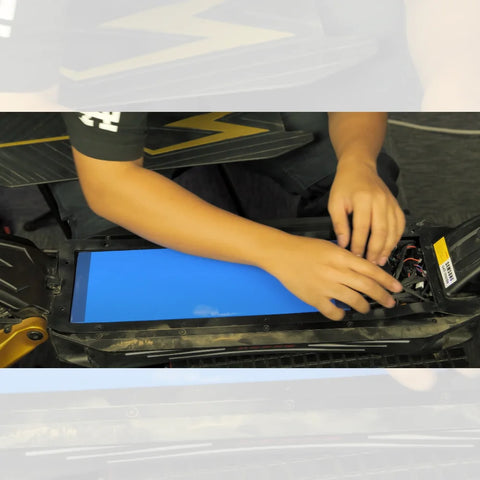
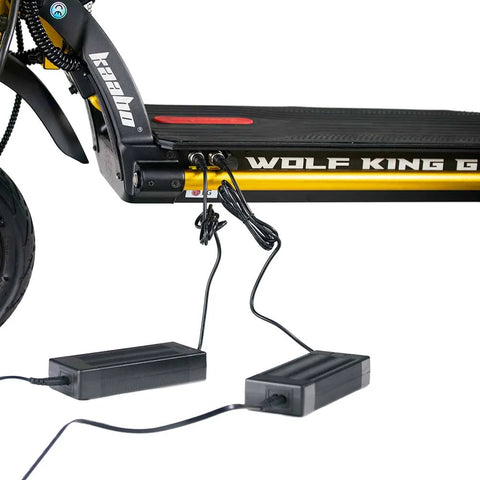
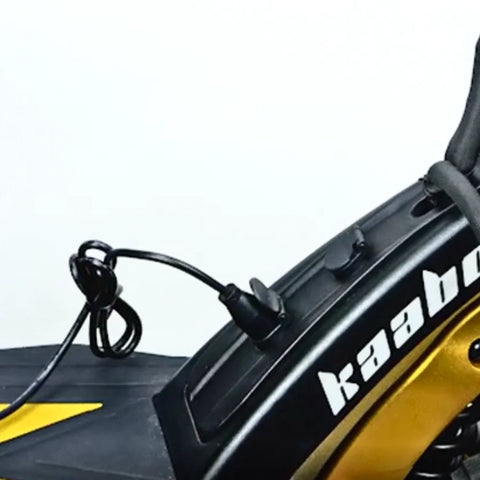
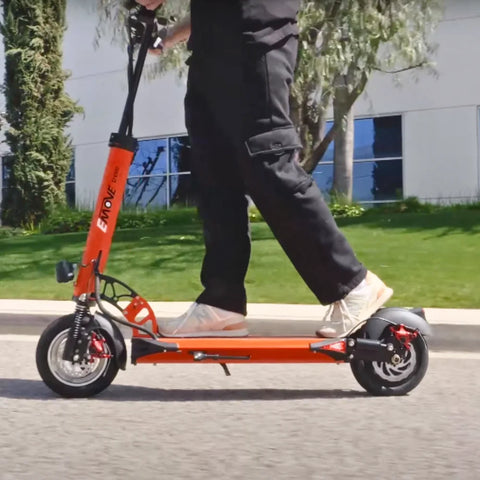
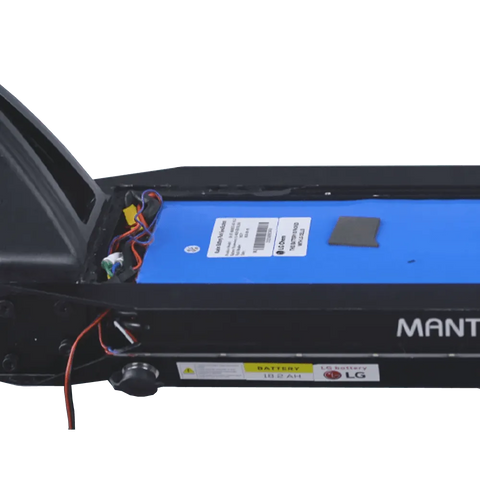
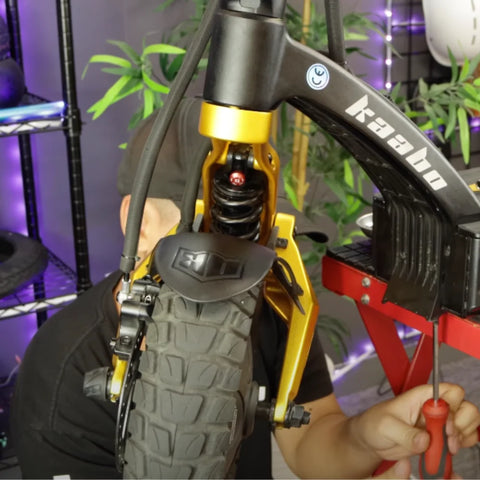
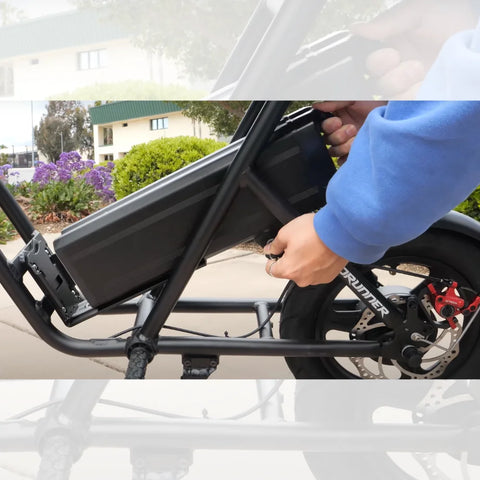
Ramon Aridio
December 30, 2024
gracias por la información que nosabia